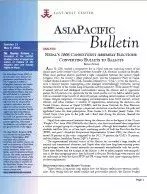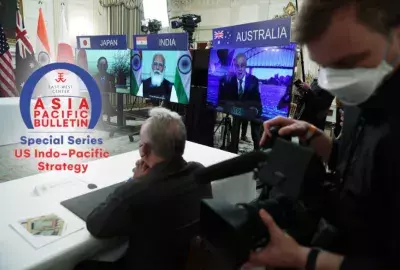Error message

Nepal's Constituent Assembly elections on April 10, 2008, were historic. While most analysts predicted a tight competition between the centrist Nepali Congress, the country's oldest political party, and the Communist Party of Nepal (Unified Marxist-Leninist), it was the Maoist party--once a banned terrorist organization--who stunned the world by sweeping the polls, leaving uncertain the fate of the current King Gyanendra and the monarchy. Dr. Bishnu Pathak, President of the Conflict Study Center in Nepal, offers a detailed analysis of what happened during the elections and why. He contends that fear-mongering and vote manipulation tactics were not so much factors in the Maoist victory as were voter demographics and campaign strategies. But Maoist leader Prachanda and his new republic will nevertheless face numerous challenges in managing the multi-party system that has emerged. The views expressed in this publication are those of the author and do not necessarily reflect the policy or position of the East-West Center or any organization with which the author is affiliated. |
Nepal's Constituent Assembly elections on April 10, 2008, were historic. While most analysts predicted a tight competition between the centrist Nepali Congress, the country's oldest political party, and the Communist Party of Nepal (Unified Marxist-Leninist), it was the Maoist party--once a banned terrorist organization--who stunned the world by sweeping the polls, leaving uncertain the fate of the current King Gyanendra and the monarchy. Dr. Bishnu Pathak, President of the Conflict Study Center in Nepal, offers a detailed analysis of what happened during the elections and why. He contends that fear-mongering and vote manipulation tactics were not so much factors in the Maoist victory as were voter demographics and campaign strategies. But Maoist leader Prachanda and his new republic will nevertheless face numerous challenges in managing the multi-party system that has emerged. The views expressed in this publication are those of the author and do not necessarily reflect the policy or position of the East-West Center or any organization with which the author is affiliated. |







